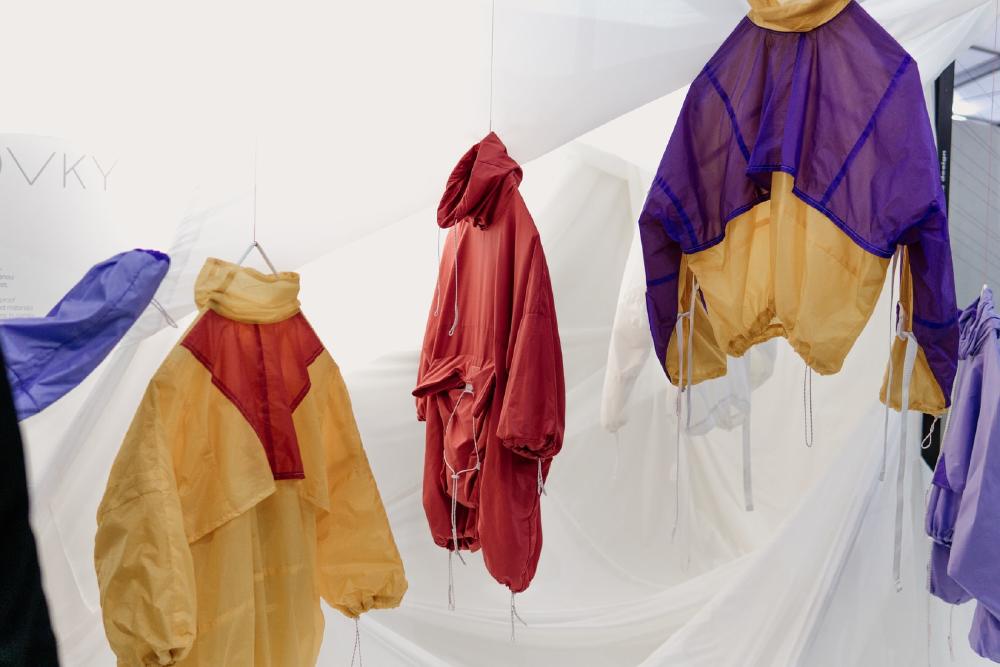
If you're wondering where to find a second-hand clothing near me?In the last few years, a massive force started reshaping the fashion industry. We are talking about secondhand clothing. According to 2019 research, the U.S secondhand clothing market is supposed to triple its size and in value in the next 10 years. It's going from US$28 billion in 2019 to US$80 billion in 2029. That means a US$60 billion growth in 10 years. Also, second-hand clothes are a response to climate change, even more in a time that a global pandemic hit us. This is your article! Let's dive into Second-Hand Clothing: How to Find the Ideal Thrift Store Near Me.
In 2020, the first lockdown regulations had a big impact on the fashion industry. While people stayed at home in their pajamas, stores were empty and with full stock. This caused stores to close down. You might think that online sales would increase a lot during the pandemic, but they only increased by 22%. This left the fast fashion industry full of clothes no one was buying either off or online.
This crisis affected big and small brands, but it also made clear how no sustainable fast fashion industry is. 70 billion garment workers were laid off during the first 5 months of 2020, revealing how unhealthy is the fast fashion industry, not only in environmental issues but in human rights.
If you-re interested on Sustainable Fashion, please check our article "What is 'Sustainable Fashion', and why is it important?".
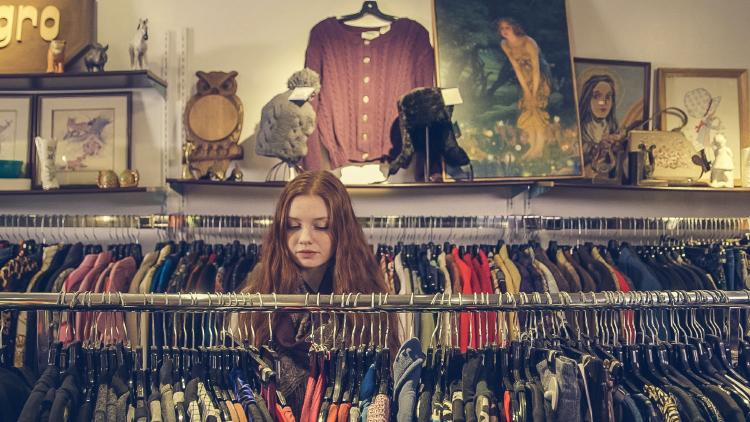
Recent research shows that most consumers state that it has become important to limit the impact on climate change, especially while living in lockdown. Consumers also want fashion companies to uphold their environmental and social responsibilities. As well, they considered the use of sustainable materials to be an important factor in their purchases and are expecting brands to take their employee's rights seriously, during the COVID-19 crisis.
Second-hand clothing has a big potential to dramatically alter the fast fashion monopoly. And if you don't know what exactly is fast fashion, is just a business model characterized by basing on cheap and disposable clothing. Clothes that you buy for less doesn't mean are made with fewer resources. It just means that they will last less. Fast fashion encourages consumers to buy in excess because of the low prices that they get from producing more clothing of less quality.
This is how it works. The secondhand clothing market has two major categories: Thrift stores and Resale platforms. Since the Covid pandemic stroke, resale platforms have had a boom. Before that, shopping for secondhand goods was perceived as tainted, vintage, and sometimes linken to treasure hunting for a bargain. But now while the information on the environmental impact of the fashion industry becomes more clear, secondhand clothes have become a good habit for environmentally conscious groups.
Check this article: The New Retail. How to Buy Second-Hand Clothes that Fit my Style.
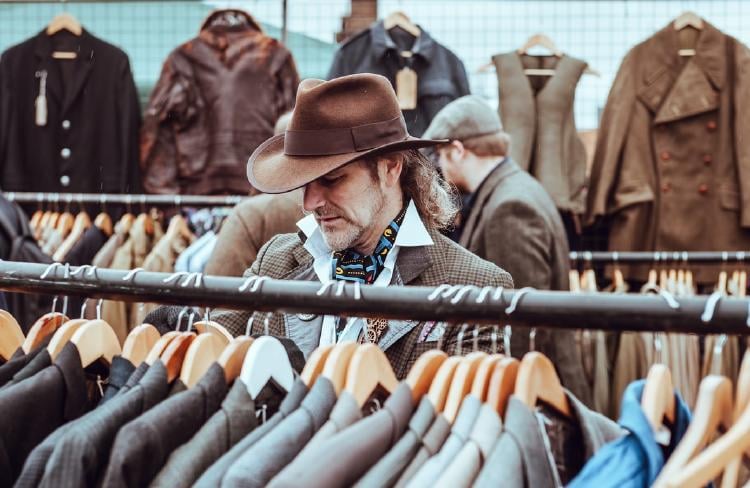
While fast fashion is expected to continue to grow 20% in the next 10 years, secondhand fashion is poised to grow 185%. So let's dive into this new trend that is revolutionizing the market and your closets.
The secondhand market is growing 21x faster than the regular market. Most brands are visiting the possibilities of investing in the market. Because this trend came to stay. By 2028 the secondhand market is set to skyrocket in value, meaning that fast fashion will be in downfall. And how did it became a successful trend? Well, it is driven by the consumers. As well as the rise of online resale and the need for more sustainable shopping choices.
The textile industry produces more carbon emissions than the airline and maritime industries put together. It comes second, right behind the kettle industry. Almost 20% of the water pollution is the result of the water waste from the production of textiles. This means buying second-hand clothing has a great and positive impact on the environment.
Buying second-hand clothes increase the number of owners an item will have, extending its "wearable" life cycle. The life of an item has dramatically shortened in the age of fast fashion. This happens because brands increase the number of collections they release, creating an urge of consumption to the consumer, so they will toss their 5month old clothes to the back of their closets and never wear them again.
Plus, fast fashion is not known to produce high-quality clothes, on the contrary, fast fashion is characterized by using low-quality materials to male disposable clothing. And embracing second-hand clothes could mean a pushback from the consumers against fast fashion.
You can start by reviewing what you have in your own closet. Do you wear all of those items? How long since you wore that cocktail dress, uh? It is important for us to remember to use what we have because even though those clothes are not in a landfill, they are still waste. This means your clothes need a new owner.
So here are a few tips for you to give your old clothes a new life!
Remember that what you don't use could be a lifesaver for another person. So help those in need and donate your clothes to goodwill, community shelters, and churches. Here you have a list that you can filter geographically.
If you really love an item and don't know what to do with it because it does not fit you anymore or it is way out of style. Why not try to make them into something new. Worst-case scenario, you'll turn them into rags.
Now that you have a clean slate, and you have decluttered your closet you can head on and replacing the items you need to have a mad style.
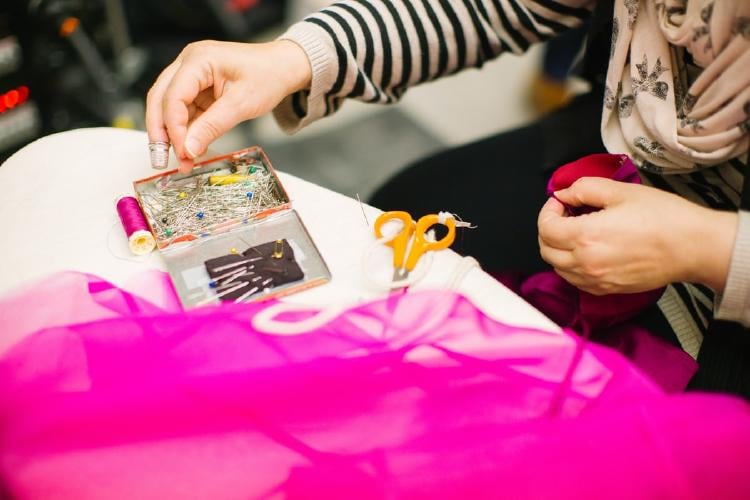
Namely, purchasing pre-worn clothing. By buying a second-hand item, you’re helping to reduce its carbon footprint by up to 80%.
So let's see where are the best places for you to buy and sell second-hand clothes. Whatever your taste is, I guarantee you'll find something here that rings a bell for you.
Check this article: The New Retail. How to Buy Second-Hand Clothes that Fit my Style.
Purchasing Second-Hand Clothing
Here is a quick list of some amazing second-hand stores. From High End and Vintage Clothing to every day and streetwear:
So let´s review some of my favorite from that list:
Maeven Vintage is a Brooklyn-based vintage online store, Maeven Vintage sells vintage clothing, jewelry, and accessories. Here you will find amazing vintage and high-quality clothing that no one will suspect is a second-hand item.
Tradessy has a huge variety of second-hand clothes. You can find everything from a Rolex to a wedding dress. Based in Santa Monica, is a woman-owned business founded for women. 100 authentic labels. It has great returning policies and guarantees has everything from vintage clothing to wedding dresses.
MAW Supply, (is short for man and woman) based in Houston, Texas is a vintage store for the cool kids. They have amazing items, and guess what? Is a black-owned business. You can check out their store here.
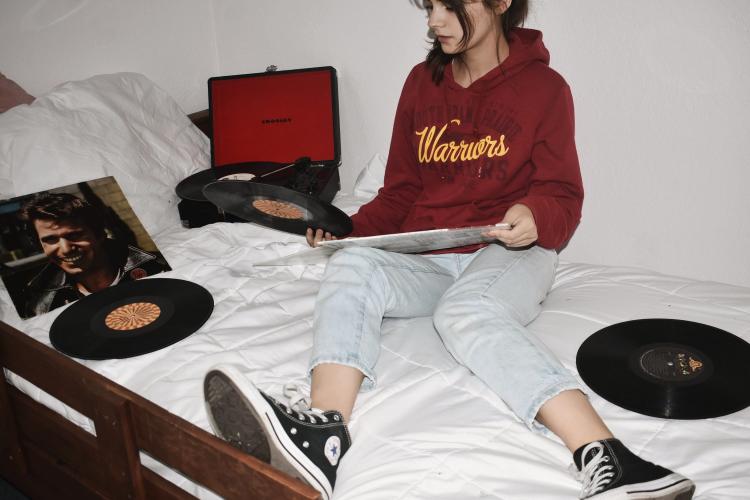
Flyp is a platform that connects people that want to sell clothes with independent professional resellers. Is very easy to use. You just need to take a picture of each item you want to sell, Flyp seller apply to sell your clothes and you choose the one you prefer or the most convenient one for you. Then Flyp gives you a shipping label, you know what to do next, right? After the pro-seller actually sells your item, you get the money!
Check it out! Maybe you can make some room in your closet and get some cash for it!
Don’t hesitate to visit Rebag. This is an online thrift store exclusively for luxury bags. If there is sustainable fashion heaven, I´m pretty sure is this. They offer a big variety of handbags, backpacks, totes, and whatever you’ve seen on fashion shows.
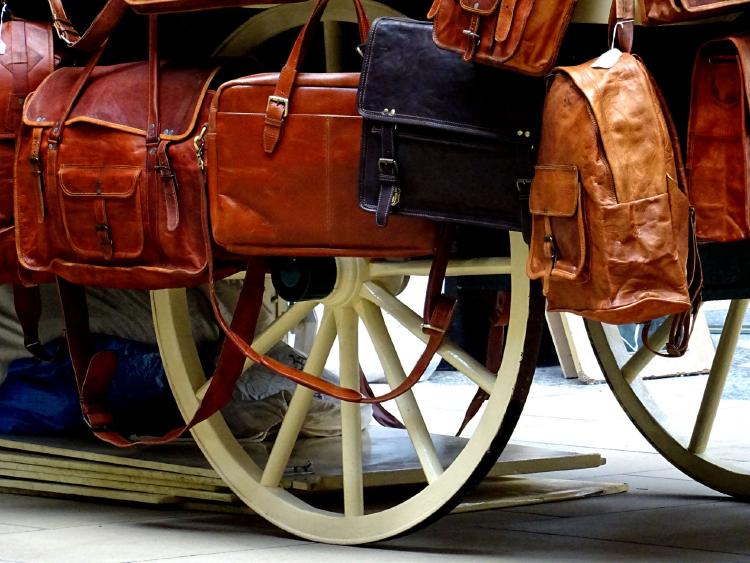
One of the biggest online thrift stores in the country is ThredUP deals with kids and women secondhand clothes. This San Francisco-based online consignment store has over 2 million items across 35,000 brands. I bet you can find something for you here, no doubt!
Hmmm yes! It’s called E-bay. Is another amazing place where you can sell and buy second-hand clothes. This falls into a cheaper side but you will find a wider selection from a wider variety of places. But keep in mind is a lucky dip over quality control!
Thrifting is a great way to get everything you need. You will be helping the environment while finding out your style.
What are your thoughts on second-hand clothes? Have you ever thrifted before?
You may be also interested at: Best Places To Find Used Clothing: a Trend or the Best Option for Sustainable Fashion?